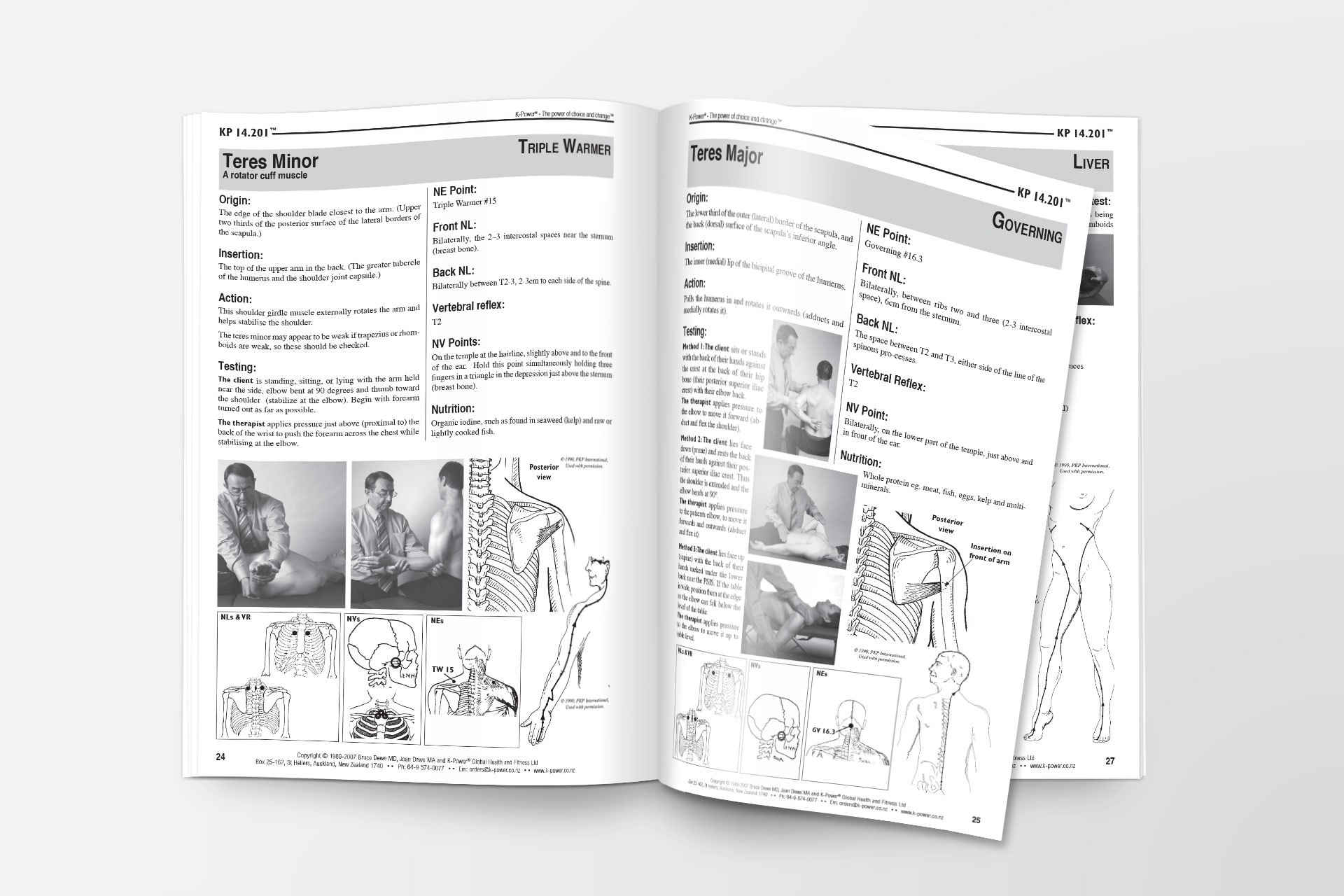The Shoulder/Arm Protocol
Prerequisites: 5-Element Fundamentals and Muscle Testing Basics for Manual Therapists; Core Muscles and Technique
Duration: 1 Day
Clients rarely ask for help because of ‘imbalances in their muscle energy’ – rather they come complaining of pain, restricted movement, weakness, or a combination of these.
The purpose of this workshop is to develop skill and understanding in evaluating and balancing muscle energy imbalances in the 22 muscles of the shoulder girdle to provide such an alternative for clients. Learning to recognise significant clues that clients give such as, “I’m shouldering my burdens” can be a very effective pathway to client management. The course therefore works with not only the physical but also the mental, emotional and metaphysical aspects of shoulder problems.
In this workshop you will learn:
Skill and understanding in evaluating and balancing 22 Shoulder girdle muscles
- Pectoralis Major Clavicular (PMC)
- Pectoralis Major sternal (PMS)
- Subclavius
- Anterior serratus
- Anterior deltoid
- Supraspinatus
- Latissimus dorsi
- Lower trapezius
- Middle trapezius
- Middle deltoid
- Posterior deltoid
- Infraspinatus
- Subscapularis
- Coracobrachialis
- Teres minor
- Teres major
- Levator scapulae
- Rhomboids
- Upper trapezius
- Biceps
- Triceps
- Pectoralis minor
The condition may or may not be the result of an injury. They may have seen another practitioner and been given anti-inflammatory medication and had physiotherapy or massage. But they may have experienced a poorer response to the treatment than they expected and are now looking for an alternative.
Dr Bruce Dewe, K-Power® Co-Founder




